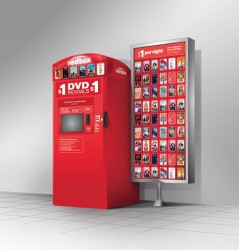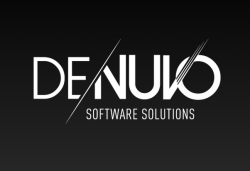Welcome to another edition of the WNR. Sorry for the lack of an edition last week, again, nothing much was happening. So this is the first WNR of March, and long time readers will know it is my favourite month because it’s when my birthday happens. I know, self absorbed much? But still, March is a nice month generally regardless of where you are (spring in the Northern hemisphere, and a nice autumn here in the south), and how can you not love a month that sees a Star Wars film being released on Blu-ray. I know, nerd much?
A few things to go through, so let’s not waste too much time on the intro …
![]()
If you want a checklist of things not to do when it’s time to release a game, just take a look at what Square Enix did do with the release of Final Fantasy XV on Windows. First of all, Square Enix’s decision to use Denuvo was always going to be a bad one, when it comes to building relationship with your customers and fans – they weren’t happy! But if you’re going to use Denuvo, there are a few things you need to ensure. First, don’t release pre-load files on Origin in unencrypted form that allowed cracking groups from all over the download the full game files, ready for distribution once the game is cracked. Second, and this is a big one, don’t release a demo that included a game launch executable that could somehow be used with the full game to bypass copy protection. That’s right, Square Enix managed to release a crack for their own game via the demo version, and all signs point to the full game (minus the DLC content) being playable.
Square Enix’s SNAFU does present an unique opportunity to benchmark the performance of Denuvo, and whether or not it affects gaming performance. Some benchmarks have already come in, but most of these test the demo version against the full version for the first few levels (which both the demo and full version include). Most of these say that there are no performance losses associated with Denuvo. While this does test a Denuvo-free version of the game against the Denuvo version, there’s is no information that suggest that the demo is at exactly the same optimization stage as the full release version – the full version may have included additional performance optimizations that the demo version does not. A better test would be the pirated version (with the demo exe, and the full game files) versus the full official version. Hopefully, a benchmark of this type will be made soon (and the benchmark hopefully will take into account the need to ensure there are no GPU bottlenecks fudging up the results – it’s stressing the CPU, preferably on a minimum requirement spec system, that will ultimately show up any performance differences, if there are any).
It’s not going to be easy to segue into the other stories this week since there’s not much in common with any of them, so I’m not even going to try. And so the next story is one that shouldn’t come as a surprise to anyone – the U.S. government is now actively helping the MPAA fight Kodi boxes.
Do a congressional testimony thing, or a discussion panel in this week’s case, let the MPAA and others provide a one sided argument about the dangers and perils of the latest piracy craze, and then the government, as expected, take “swift” action using taxpayer’s money to defend Hollywood corporations from, in most cases, an exaggerated threat. And sometimes, even the President get in on the act, something that Trump’s handlers was able to get him to do this week too.
We now have Netflix, Amazon, Hulu for streaming plus iTunes, Google and Amazon again for downloads, there’s also DVD, Blu-ray and Ultra HD Blu-ray, not to mention cinemas, early digital releases and cable. If after all this, people are still relying on piracy, then it either means piracy is still somehow better/easier to use than the myriad of legal options, or that people simply can’t afford to pay the prices that Hollywood demands (not if they want access to all the content they like). You can’t stop piracy – people will find a way – but you can minimize it if you give people a better service at a price they deem is affordable/good value. And even then, you’ll probably still have people who prefer piracy.
Innovate, not legislate (or litigate), out of this problem.
Speaking of innovation (hey, I guess there was a way to segue, after all), with Spotify about to get listed on the New York Stock Exchange, and being valued at $20 billion, you might be surprised to find that Spotify’s origins had many links to piracy. In fact, you might be even more surprised to find that Spotify once owned a piece of software called uTorrent – yes, the same uTorrent that people who don’t use Spotify use to “obtain” music.
But the link isn’t so strange when you consider that one of the early developers of Spotify, Ludvig “Ludde” Strigeus, just happened to have invented uTorrent. Spotify bought his software and his technology, and then only a few months later, sold the software to BitTorrent Inc, the current owners. Spotify not only gained technology that they integrated into their own software in the transaction, but they also made a bit of money in the sale to BitTorrent Inc, money that they put to good use to grow the company into the $20 billion behemoth it is now. And not only that, it has virtually wiped out music piracy as a thing of concern even to the likes of the music industry, who failed to innovate out of the problem, but instead, let someone else, Spotify, to benefit from the innovation.
======
That’s all I have for you this week. Given that it’s my birthday next week, I might not find the time to do too much work (hehe). But if I do find the time, then see you next week.













